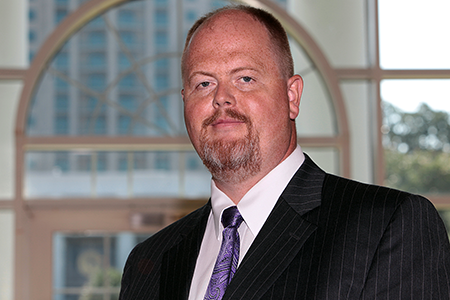March 6, 2024, 12-1 p.m.
Beusse Sanks patent attorney Terry Sanks and Loula Fuller & Dan Myers Professor and Associate Dean for Research Jake Linford discuss the state of intellectual property litigation alleging infringement by generative artificial intelligence tools. Who is winning early motions? Which cases look most promising? What does this mean for the development of AI technologies and the scope of IP rights now and in the future?
View the recording of this event.
The Continuing Legal Education (CLE) program provides quality legal education courses to members of The Florida Bar. This course has been approved for 1.0 hour of General CLE Credit including 1.0 hour of Technology Credit and 1.0 hour of Intellectual Property Law Credit by The Florida Bar's Continuing Legal Education program. CLE numbers, FL: 2402914N
Featured Speakers

Terry Sanks ('98), a registered patent attorney, is a founding member of Beusse Sanks. Sanks is known for bringing a holistic approach to the practice of intellectual property law. With this ability, he provides representation in all areas of IP law, including patents, trademarks, copyrights, trade secrets, litigation, licensing and other IP related business transactions. Having vast experience in all areas of IP law, Sanks guides clients in developing strategies to best utilize and protect their intangible assets, namely their intellectual property (“IP”). Sanks' diverse practice further includes managing patent portfolios and trademark portfolios for Fortune 500 companies and regional companies.

Jake Linford is the Loula Fuller & Dan Myers Professor and Associate Dean for Research at the Florida State University College of Law. He focuses his scholarship on trademarks, copyright, and contract law. He teaches Trademarks and Unfair Competition, Contracts, Copyright, Information Privacy, and various IP and tech-related seminars. His scholarship empirically tests and theoretically reassesses key trademark and copyright doctrines, and has been published in leading law reviews including The Georgetown Law Journal, Notre Dame Law Review, and Minnesota Law Review.
